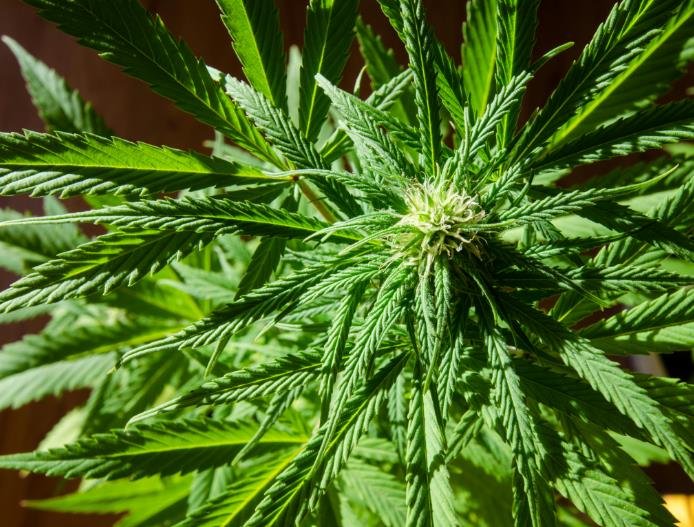New York’s cannabis industry is taking a significant step towards sustainability. The state’s Office of Cannabis Management (OCM) has mandated that all licensed cannabis cultivators must submit a comprehensive sustainability plan by August 31, 2025. This initiative aims to align the cannabis industry with New York’s broader green energy mandates, ensuring that both indoor and outdoor cannabis grows are environmentally responsible. The OCM will provide tools and resources to help cultivators track their energy and water use, waste management, and other sustainability metrics.
The New York State Cannabis Advisory Board has emphasized the importance of sustainable practices in the burgeoning cannabis industry. During a recent meeting, officials discussed the launch of a free online tool called PowerScore, which will be available in early September. This tool will enable cultivators to monitor their electricity and water usage, waste production, and other critical metrics. By encouraging the use of LED lights and other energy-efficient technologies, the OCM aims to reduce the environmental impact of cannabis cultivation.

The state’s commitment to sustainability extends beyond energy use. The OCM is also focusing on reducing plastic waste associated with cannabis products. Judith Enck, President of Beyond Plastics, highlighted the issue of plastic pollution from cannabis packaging, which often ends up in storm drains and waterways. The state is considering regulations to limit the use of single-use plastics in the cannabis industry, aligning with broader environmental goals.
The sustainability data collected from cultivators will play a crucial role in shaping future regulations. The OCM plans to use this data to develop incentives for licensees who adopt sustainable practices. This proactive approach aims to ensure that New York’s cannabis industry not only thrives economically but also contributes positively to the environment.
Challenges and Opportunities for Growers
Implementing sustainable practices presents both challenges and opportunities for cannabis growers in New York. One of the primary challenges is the initial investment required for energy-efficient technologies and sustainable practices. However, the long-term benefits, including cost savings and regulatory compliance, make these investments worthwhile. The OCM’s PowerScore tool will help growers identify areas where they can improve efficiency and reduce costs.
Another challenge is the need for education and training. Many cultivators may not be familiar with the latest sustainable practices and technologies. The OCM plans to offer resources and support to help growers transition to more sustainable methods. This includes workshops, online courses, and one-on-one consultations with sustainability experts.
Despite these challenges, there are significant opportunities for growers who embrace sustainability. By adopting green practices, cultivators can differentiate themselves in a competitive market. Consumers are increasingly looking for environmentally responsible products, and sustainable cannabis can attract a loyal customer base. Additionally, growers who lead in sustainability may benefit from future incentives and support from the state.
The move towards sustainability also aligns with broader industry trends. As more states legalize cannabis, there is a growing emphasis on environmental responsibility. New York’s proactive approach positions its cannabis industry as a leader in sustainability, setting a standard for other states to follow.
Future Implications for the Cannabis Industry
The requirement for sustainability plans marks a significant shift in the cannabis industry. It reflects a broader trend towards environmental responsibility and aligns with New York’s ambitious climate goals. The state’s Climate Leadership and Community Protection Act (CLCPA) aims to reduce greenhouse gas emissions and promote renewable energy, and the cannabis industry is expected to contribute to these goals.
The OCM’s focus on sustainability is likely to influence other aspects of the cannabis industry, including packaging, transportation, and retail. As the industry grows, there will be increased scrutiny on its environmental impact. By setting high standards for sustainability, New York is positioning itself as a leader in the green cannabis movement.
The success of this initiative will depend on the collaboration between the OCM, cultivators, and other stakeholders. The state’s commitment to providing resources and support is a positive step, but it will require ongoing effort and innovation from all parties involved. The next year will be crucial in determining how effectively the industry can transition to more sustainable practices.
In conclusion, New York’s mandate for cannabis growers to develop sustainability plans is a forward-thinking move that aligns with the state’s environmental goals. It presents both challenges and opportunities for cultivators, but with the right support and resources, the industry can thrive sustainably. This initiative sets a precedent for other states and highlights the importance of environmental responsibility in the cannabis industry.
Maria Garcia is an award-winning author who excels in creating engaging cannabis-centric articles that captivate audiences. Her versatile writing style allows her to cover a wide range of topics within the cannabis space, from advocacy and social justice to product reviews and lifestyle features. Maria’s dedication to promoting education and awareness about cannabis shines through in her thoughtfully curated content that resonates with both seasoned enthusiasts and newcomers alike.








